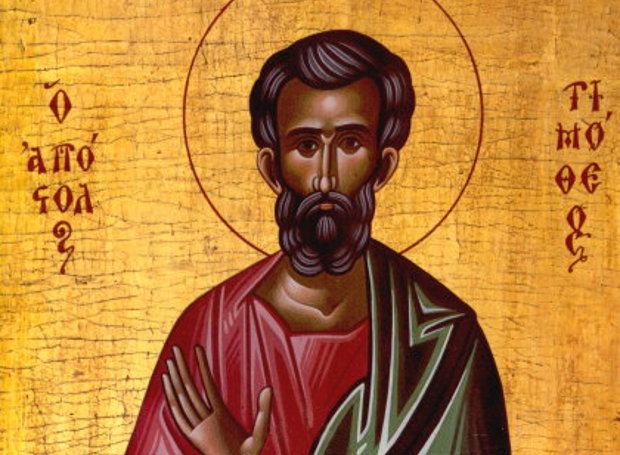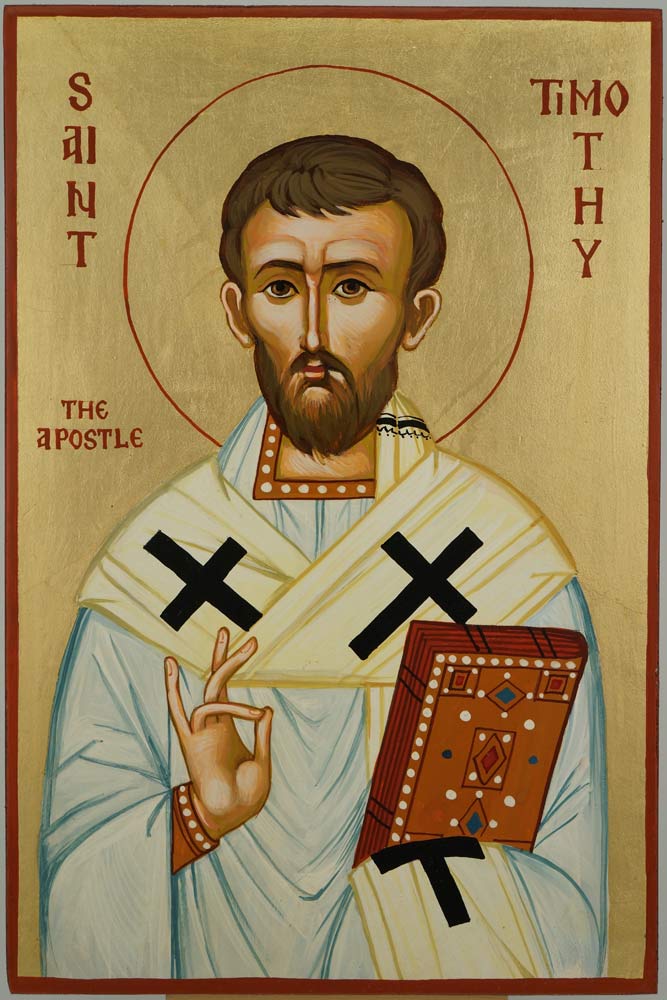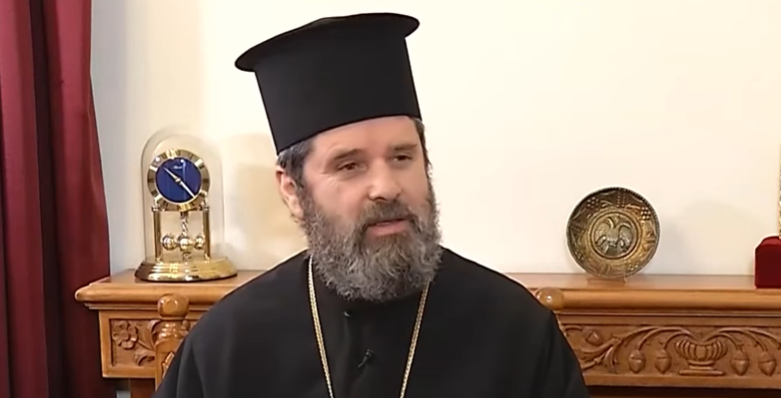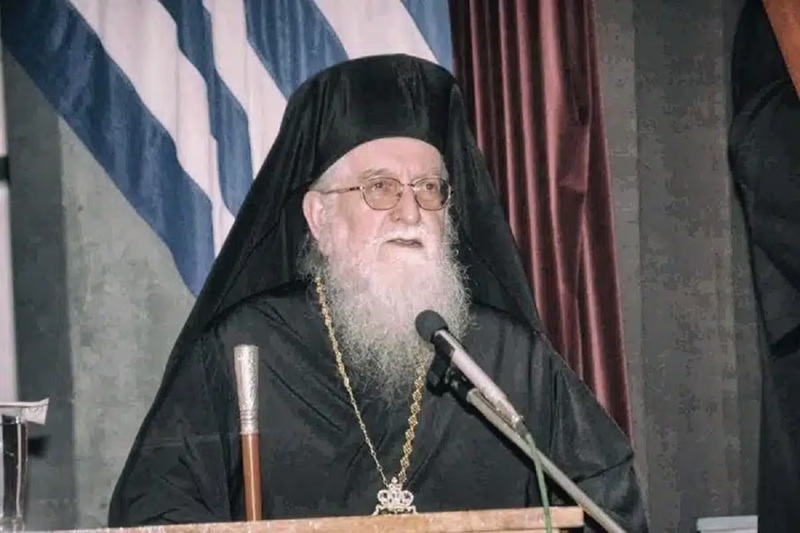Memory of Saint Timothy the Apostle (22 January)

The Church commemorates Saint Timothy the Apostle.
Saint Timothy was a faithful disciple of Saint Paul the Apostle and is addressed as the recipient of the First and Second Epistles to Timothy.
These two books are a group of three books of the canonical New Testament, which are called pastoral epistles, because they addressed not to Christian communities but to spiritual shepherds-bishops with pastoral oversight of local churches, such as Timothy, who shepherded with ardor and self-denial the Church of Ephesus in Asia Minor.
Saint Timothy first met his teacher in his hometown, Lystra, when Saint Paul visited the city. His spiritual gifts and Greek education were highly valued, and from that time on he followed Saint Paul on his second missionary tour in Greece.

The Apostle Timothy also worked with Saint John the Evangelist before his exile to Patmos. He was martyred and buried in Ephesus, but later his holy relic was transferred to Constantinople and placed in the Church of the Holy Apostles.
The Apostle Timothy, who was from Lystra of Lycaonia, was born of a Greek (that is, pagan) father and a Jewish mother. His mother’s name was Eunice, and his grandmother’s name was Lois (II Tim. 1:5). He became the disciple of the Apostle Paul when the latter first preached there, and he followed St. Paul during the whole period of the Apostle’s preaching. Afterwards, Timothy was consecrated by him as first Bishop of the church in Ephesus. Under the supervision of John the Evangelist, who governed all the churches in Asia, he completed his life as a martyr in the year 97. He was stoned to death by the heathens, because, as some surmise, he opposed the festival held in honor of Artemis (Diana). The Apostle Paul’s First and Second Epistles to Timothy were written to him.
The Holy Apostle Timothy was from the Lycaonian city of Lystra in Asia Minor. Saint Timothy was converted to Christ in the year 52 by the holy Apostle Paul (June 29). When the Apostles Paul and Barnabas first visited the cities of Lycaonia, Saint Paul healed one crippled from birth. Many of the inhabitants of Lystra then believed in Christ, and among them was the future Saint Timothy, his mother Eunice and grandmother Loida (Lois) (Acts 14:6-12; 2 Tim. 1:5).
The seed of faith, planted in Saint Timothy’s soul by the Apostle Paul, brought forth abundant fruit. He became Saint Paul’s disciple, and later his constant companion and co-worker in the preaching of the Gospel. The Apostle Paul loved Saint Timothy and in his Epistles called him his beloved son, remembering his devotion and fidelity with gratitude.
He wrote to Timothy: “You have followed my teaching, way of life, purpose, faith, longsuffering, love, and patience” (2 Tim. 3:10-11). The Apostle Paul appointed Saint Timothy as Bishop of Ephesus, where the saint remained for fifteen years. Finally, when Saint Paul was in prison and awaiting martyrdom, he summoned his faithful friend, Saint Timothy, for a last farewell (2 Tim. 4:9).
Saint Timothy ended his life as a martyr. The pagans of Ephesus celebrated a festival in honor of their idols, and used to carry them through the city, accompanied by impious ceremonies and songs. Saint Timothy, zealous for the glory of God, attempted to halt the procession and reason with the spiritually blind idol-worshipping people, by preaching the true faith in Christ.
The pagans angrily fell upon the holy apostle, they beat him, dragged him along the ground, and finally, they stoned him. Saint Timothy’s martyrdom occurred in the year 93.
In the fourth century the holy relics of Saint Timothy were transferred to Constantinople and placed in the church of the Holy Apostles near the tombs of Saint Andrew (November 30) and Saint Luke (October 18). The Church honors Saint Timothy as one of the Apostles of the Seventy.
In Russian practice, the back of a priest’s cross is often inscribed with Saint Paul’s words to Saint Timothy: “Be an example to the believers in speech and conduct, in love, in faith, in purity” (1 Tim. 4:12).

The Apostle Timothy, who was from Lystra of Lycaonia, was born of a Greek (that is, pagan) father and a Jewish mother. His mother’s name was Eunice, and his grandmother’s name was Lois (II Tim. 1:5). He became the disciple of the Apostle Paul when the latter first preached there, and he followed St. Paul during the whole period of the Apostle’s preaching. Afterwards, Timothy was consecrated by him as first Bishop of the church in Ephesus. Under the supervision of John the Evangelist, who governed all the churches in Asia, he completed his life as a martyr in the year 97. He was stoned to death by the heathens, because, as some surmise, he opposed the festival held in honor of Artemis (Diana). The Apostle Paul’s First and Second Epistles to Timothy were written to him.
Timothy was one of the Seventy Apostles. He was born in Lystra in Lycaonia of a Greek father and a Jewish mother. The Apostle Paul praised his mother and grandmother because of their sincere faith: I yearn to see you again, recalling your tears, so that I may be filled with joy, as I recall your sincere faith that first lived in your grandmother Lois and in your mother Eunice and that, I am confident, lives also in you (II Timothy 1:4-5). Timothy first met with the great Apostle in Lystra, and was himself a witness when Paul healed the one lame from birth. Later, Timothy was an almost constant traveling companion of Paul, going with him to Achaia, Macedonia, Italy and Spain.
Sweet in soul, he was a great zealot for the Faith and a superb preacher. Timothy contributed much to the spreading and establishing of the Christian Faith. Paul calls him my own son in the faith (I Timothy 1:1-2). After Paul’s martyrdom, St. John the Evangelist was Timothy’s teacher. When the Emperor Domentian banished John from Ephesus to the island of Patmos, Timothy remained in Ephesus to serve as bishop. During an idolatrous feast called Katagogium, the pagans, resentful of the Christians, disguised themselves and treacherously attacked Timothy, killing him in about the year 93 A.D. His honorable relics were translated to Constantinople and were interred in the Church of the Twelve Apostles, beside the graves of St. Luke the Evangelist and St. Andrew the First-called.
Apolytikion of Timothy of the 70
Fourth Tone
Since thou hadst been instructed in uprightness thoroughly and wast vigilant in all things, thou wast clothed with a good conscience as befitteth one holy. Thou didst draw from the Chosen Vessel ineffable mysteries; and having kept the Faith, thou didst finish a like course, O Hieromartyr and Apostle Timothy. Intercede with Christ God that our souls be saved.
Kontakion of Timothy of the 70
First Tone
With hymns let us, the faithful, sing Timothy’s praises as Paul’s divine disciple and faithful companion; with him let us also laud Anastasius the godly-wise, who shone forth with splendor like a star out of Persia and doth drive away from us our bodily sickness and spiritual maladies.
Source: Church of Cyprus / goarch.org




